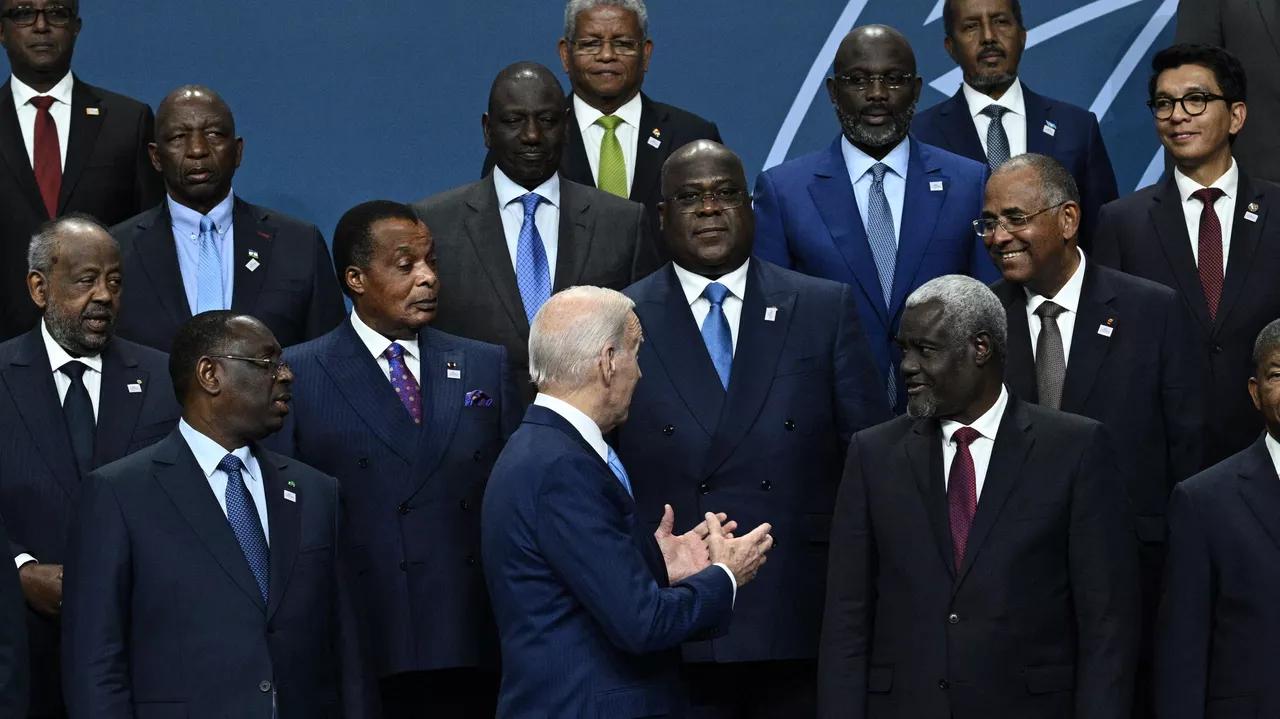Africa-Press – Liberia. The 2022 US–Africa Leaders Summit, which took place from 13 to 15 December in Washington DC, was the second such event in history. It has been widely seen as part of an American attempt to counter growing Chinese influence in Africa. Sputnik asked various experts to assess Washington’s chances of success.
America’s intensified efforts to compete with China in cooperating with Africa face several obstacles, with the Chinese development model being more attractive to the developing nations than the US model, Dr Ezzat Saad, director of the Egyptian Council for Foreign Affairs, said in an interview with Sputnik.
Saad also notes that Washington treats Africa “as a bloc without states with their own interests and concerns”, which “undoubtedly reflects the strength of the relationship between Washington and Africa”.
The American strategy on the continent, which is characterized by a high level of politicization of relations, is connected to the US global political interests, says Ovigwe Eguegu, a Nigerian policy adviser at consultancy Development Reimagined, specializing in geopolitics – with particular reference to Africa in the changing global order.
There are all sorts of fields of competition among foreign powers in Africa. One of the most important is investment, as the continent is still “in dire need” of funding, mainly to develop infrastructure and human capital, says Nicholas Dweh Nimley, a writer and research scholar on China-Africa Cooperation who is also chief editor of Liberia’s NEWCOM Television. According to him, if the US was serious about wanting to compete with the East Asian giant, it could provide low-interest loans to Africa or write off infrastructural loans as China does – but it is uncertain whether such measures would be approved by Congress, “because it is the US taxpayers’ money”.
For his part, Saad believes that the announcements made at the Washington summit – such as plans to invest at least $55Bln in Africa over the next three years, to allocate $2.5Bln for food aid and to lend up to $21Bln through the International Monetary Fund to low and middle-income countries – are too paltry to eclipse Chinese influence.
China, in contrast, sees insecurity in Africa as a consequence of insufficient sustainable development, believing that economic and technical assistance as well as investments in infrastructure projects are necessary to achieve “stability, security, social peace and good governance in the countries of the continent”, he underlines. China is Africa’s main direct backer, with its investment roughly double that of the US.
Another area where the US and China are rivals in Africa is trade. Chinese exports are dwarfing US exports to Africa because of the difference in approach, Nimley notes. In his opinion, “it is about quantity over quality”, as China supplies Africa with products and services more suitable to the continent’s purchasing power, which is still quite low.
China is Africa’s largest trading partner, with the volume of trade between the Asian state and the continent reaching $254Bln last year – four times the value of trade between the US and African countries.
There are several more spheres in which the US seeks to counter China. One such is education, Nimley notes, with America often the more attractive for Africans because of easier integration “despite China being the favorite destination for African students thanks to the scholarships provided annually”. The expert also noted climate change aid and military support as potential fields of developing US-Africa cooperation.
However, notes Saad, the history of US-Africa policies has made it difficult for Africans to trust Washington’s promises, a situation which has been exacerbated by the US not following up on pledges made recently – for instance, the 2014 US-Africa Summit “did not result in concrete commitments”. The expert also emphasized that the experience with western states, including the US, “does not inspire developing countries to trust the seriousness” of American investment initiatives.
Among notable discrepancies between the rhetoric in the 2014 summit when “America’s commitment to Africa’s security” took center stage, and the post-summit reality was the ongoing crisis in Sahel, which could not be tackled either by the United States Africa Command (AFRICOM), or by America’s European allies.
Dr Frederick Golooba-Mutebi, Ugandan independent researcher and political scientist with a special interest in political economics notes that in general, where policy is concerned, America’s approach is to “lecture and bully” Africans whereas China’s approach is better appreciated by Africans, and this is a great stumbling block is America wants to compete for Africa’s affections, he believes.
Nimley says he does not think the US will achieve the role it wants to play in Africa in the medium term. He notes that America “is starting with $15Bln out of a total of $55Bln” whereas China has provided $60Bln to African countries through loans and other mechanisms. “So, for the US to regain its role, they need to help Africa to develop,” the expert concludes.
For More News And Analysis About Liberia Follow Africa-Press






